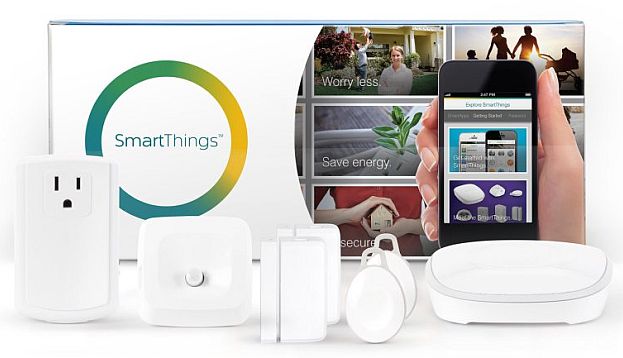As technology continues to expand and more devices become “connected” with Internet capabilities and downloading, more and more companies are battling for the attention of consumers. At the IFA conference in Berlin last week, Samsung CEO Yoon Koo-Keun addressed said needs, explaining why it’s such an important market.
“The home of the future is not about the technology and not about being smart and connected,” he stated. “It’s about it working in a way that you don’t notice the technology and giving you the right options at the right time. It’s about adapting to you.”
A lot of companies are gunning for the home market, including Google, General Electric, Revolv, ADT Home Security, iControl, Insteon and, of course, Samsung, introducing products that utilize Wi-Fi connectivity, along with Bluetooth support and other high-tech features.
Samsung projected that over 45 million homes will make the transition to being “smart homes” in the near future, indicating room for such a market. Apple has already announced a new “smart home” platform that it’s currently building into iOS 8, alongside its recently announced iPhone 6 models and Apple Watch. Apple’s big push so far has been with iBeacons, intended to transform retail spaces.
In addition, other companies have taken similar leaps. Google made its own transition into the market by picking up Nest for an approximate $3.2 billion; Intel recently modified its managerial structure to work more on “Internet of Things” (IoT for short) transition; Cisco made a trio of strategic investments in the market; and Zebra picked up Motorola’s general enterprise business for a whopping $3.5 billion. All of this will lead into eventual transition to better usage in “smart homes,” in one form or another.
Leading the charge in the IoT market is Apple, according to a report over on Forbes. However, closely behind is Nest, which would explain Google’s interest in the company’s tech, as it’s looking to compete with Apple. Other companies like Google, Intel and Microsoft round out the list, with Samsung slowly moving up in the ranks.
What do you think Is a transition to the IoT market for “smart homes” a good move for these companies Or is it too soon
Source: VentureBeat, Forbes

